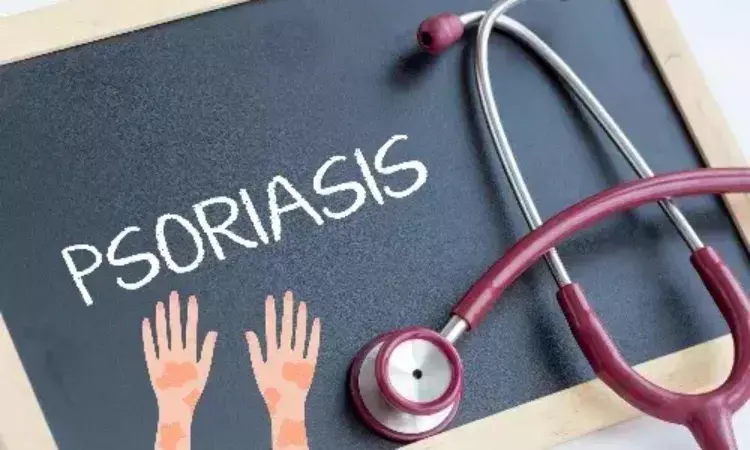- Home
- Medical news & Guidelines
- Anesthesiology
- Cardiology and CTVS
- Critical Care
- Dentistry
- Dermatology
- Diabetes and Endocrinology
- ENT
- Gastroenterology
- Medicine
- Nephrology
- Neurology
- Obstretics-Gynaecology
- Oncology
- Ophthalmology
- Orthopaedics
- Pediatrics-Neonatology
- Psychiatry
- Pulmonology
- Radiology
- Surgery
- Urology
- Laboratory Medicine
- Diet
- Nursing
- Paramedical
- Physiotherapy
- Health news
- Fact Check
- Bone Health Fact Check
- Brain Health Fact Check
- Cancer Related Fact Check
- Child Care Fact Check
- Dental and oral health fact check
- Diabetes and metabolic health fact check
- Diet and Nutrition Fact Check
- Eye and ENT Care Fact Check
- Fitness fact check
- Gut health fact check
- Heart health fact check
- Kidney health fact check
- Medical education fact check
- Men's health fact check
- Respiratory fact check
- Skin and hair care fact check
- Vaccine and Immunization fact check
- Women's health fact check
- AYUSH
- State News
- Andaman and Nicobar Islands
- Andhra Pradesh
- Arunachal Pradesh
- Assam
- Bihar
- Chandigarh
- Chattisgarh
- Dadra and Nagar Haveli
- Daman and Diu
- Delhi
- Goa
- Gujarat
- Haryana
- Himachal Pradesh
- Jammu & Kashmir
- Jharkhand
- Karnataka
- Kerala
- Ladakh
- Lakshadweep
- Madhya Pradesh
- Maharashtra
- Manipur
- Meghalaya
- Mizoram
- Nagaland
- Odisha
- Puducherry
- Punjab
- Rajasthan
- Sikkim
- Tamil Nadu
- Telangana
- Tripura
- Uttar Pradesh
- Uttrakhand
- West Bengal
- Medical Education
- Industry
New research confirms link between perceived stress and psoriasis relapse

Innovative research has provided compelling evidence that perceived stress can directly trigger the relapse of psoriatic skin lesions. The study, presented today at theEuropean Academy of Dermatology and Venereology(EADV) Congress 2024, is the first to scientifically validate this connection in vivo.
Psoriasis, a chronic skin condition affecting over 6 million people in Europe, is characterised by rapid skin cell production, leading to scaling and inflammation., While it has long been suspected that stress plays a role in exacerbating psoriasis, this research offers conclusive evidence of this link.
In the study, psoriatic lesions were induced in healthy human skin xenografts on Severe Combined Immunodeficiency (SCID)/beige mice (n=25) through the injection of autologous, in vitro IL-2-preactivated peripheral blood mononuclear cells. After achieving lesion remission with topical dexamethasone, the mice were exposed to either sonic (sound) or sham stress for 24 hours. The recurrence of psoriatic lesions was then tracked over the following 14 days.
Remarkably, sonic stress led to a relapse of psoriatic lesions in all human skin xenografts within 14 days. This was accompanied by significant changes in psoriasis-related skin phenomena, including increased epidermal thickness, K16 expression, keratinocyte proliferation, anti-microbial peptide expression, and immune activation of intraepidermal cells.
Further analysis showed that sonic stress significantly increased immune cell presence in the skin and elevated proinflammatory mediators like CXCL10, IL-22, IL-15, IL-17A/F, IFN-γ, and TNFα. Additionally, neurogenic inflammation biomarkers, such as nerve growth factor (NGF) and substance P (SP), were upregulated. Sonic stress also led to elevated levels of tryptase, indicating mast cell activation, and increased expression of NK-1R, the receptor for SP.
“Psychoemotional stress triggers the release of proinflammatory neuropeptides like SP, leading to neurogenic skin inflammation by activating immune cells, particularly through mast cell degranulation,” explains Professor Amos Gilhar, lead researcher from the Skin Research Laboratory, Bruce Rappaport Faculty of Medicine, Technion-Israel Institute of Technology, Haifa, Isreal. “This is further amplified by corticotropin-releasing hormone (CRH) and NGF, which heighten inflammation and promote keratinocyte hyperproliferation, thereby triggering and worsening psoriatic lesions in susceptible individuals."
The research team also tested the efficacy of aprepitant, an FDA-approved anti-emetic neurokinin-1 receptor (NK1-R) antagonist, in preventing stress-induced psoriasis relapse. Aprepitant prevented relapse in 80% of cases and normalised most inflammatory markers.
“Aprepitant shows great promise as a potential therapy for stress-induced psoriasis exacerbations,” Professor Gilhar remarks, though he cautioned about its off-label use and the need for further safety data. “Aprepitant selectively targets the SP-induced component of neurogenic inflammation but doesn’t impact other mediators like NGF and CRH. Combining NK-1R antagonists with other treatments may prove more effective.”
Reflecting on the broader implications of the study, Professor Gilhar adds, “In line with previous stress research in mice, our study using the ‘humanised’ psoriasis mouse model identifies SP/NK-1R signalling as a promising target for therapeutic intervention in stress-triggered or aggravated psoriasis. It also points to additional candidate targets, including NGF, mast cell activation/degranulation, and CRH/CRH-R1 signalling.”
The study underscores the complex link between the nervous system and the immune response in psoriasis. "Recognising how stress influences psoriasis allows us to refine our treatment approaches to better serve patients," Professor Gilhar furthers. “Looking ahead, our team plans to explore the clinical potential of NK-1R antagonists and to delve deeper into the role of stress management in psoriasis care.”
Reference:
New research confirms link between perceived stress and psoriasis relapse, Beyond, Meeting: EADV Congress 2024.
Dr Kamal Kant Kohli-MBBS, DTCD- a chest specialist with more than 30 years of practice and a flair for writing clinical articles, Dr Kamal Kant Kohli joined Medical Dialogues as a Chief Editor of Medical News. Besides writing articles, as an editor, he proofreads and verifies all the medical content published on Medical Dialogues including those coming from journals, studies,medical conferences,guidelines etc. Email: drkohli@medicaldialogues.in. Contact no. 011-43720751


